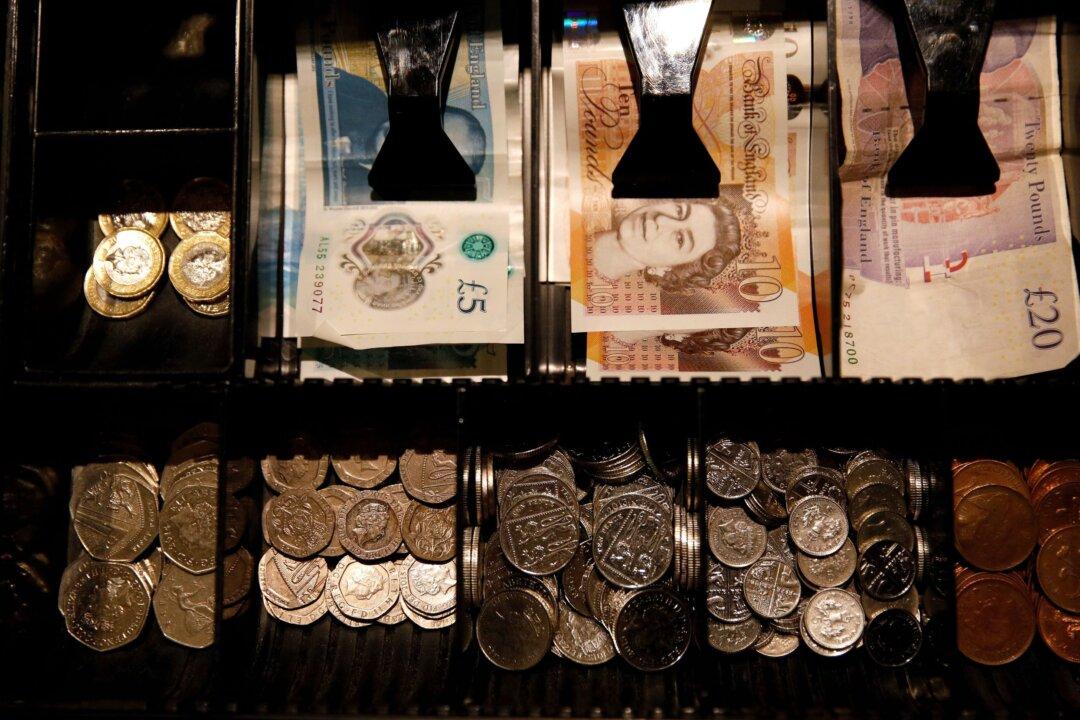LONDON—The euro dropped on Friday after inflation in the eurozone hit a record high, but headed for a weekly gain on hawkish signals from the European Central Bank as some calm returned to foreign exchange markets at the end of a wild week.
Sterling was also lower as end-of-quarter demand boosted the dollar, but was headed for its best week against the U.S. currency in 2 1/2 years as the BoE waded into the debt market to buy gilts for a second day on Thursday. On Monday, the pound hit a record low as markets were rattled by the British government’s plan to slash taxes and pay for it with more borrowing.





